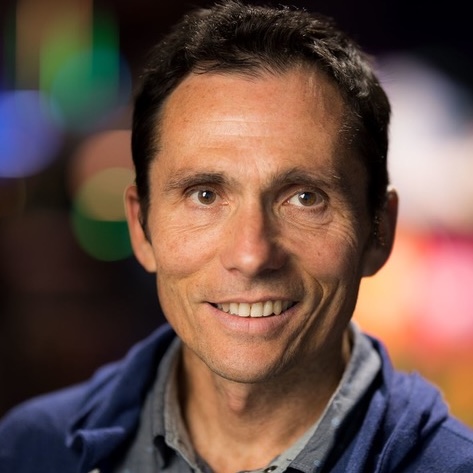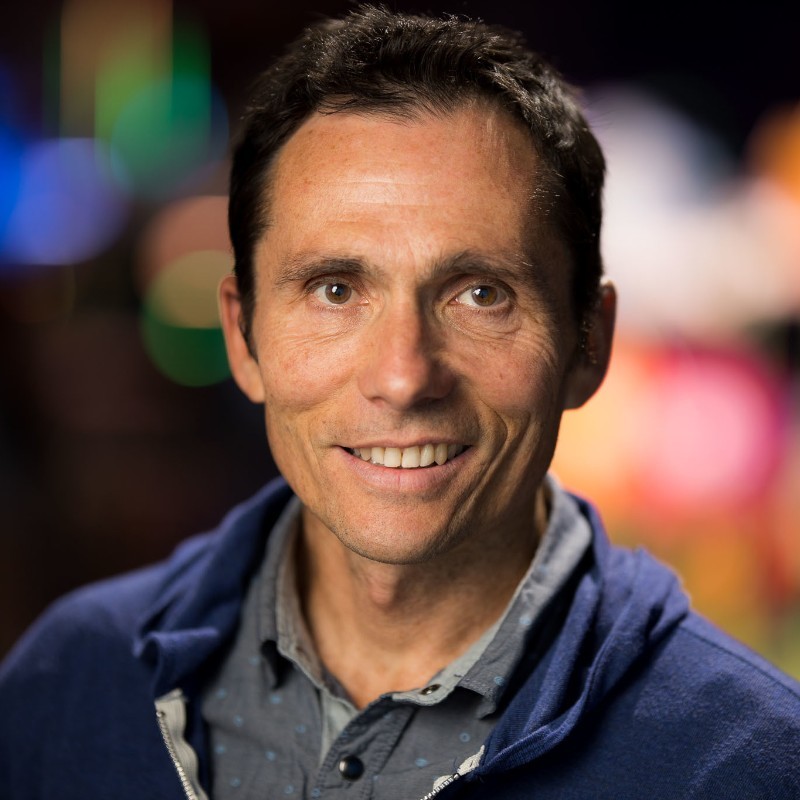Sustainable Cloud Engineering
This five-week course covers sustainable cloud computing, focusing on eco-friendly architecture, energy-efficient deployments, and GreenOps strategies to reduce IT’s environmental impact.

Created by —
Pascal Joly
Product lead, AI and data solutions expert
Intermediate level
Some experience with cloud computing or IT infrastructure is desirable but not mandatory
Flexible schedule
Learn according to your schedule with fully asynchronous learning
5 weeks / 4 hours per week
Expected commitment. We will help keep yourself accountable with timely check-ins
Certificate & Office-hours
NewCertificate and office-hour meetings with course creator and other learners
Course overview
This 5-week intermediate-level course explores the intersection of cloud computing and sustainability, equipping professionals with the knowledge and tools to minimize the environmental impact of IT infrastructure. The course begins by examining the sustainability landscape of information technology, covering the carbon footprint of data centers, emission measurement methodologies, and the business case for eco-friendly cloud solutions. Participants will then delve into sustainable cloud architecture, learning about resource-efficient design patterns, optimized data storage strategies, and hybrid cloud solutions for environmentally conscious IT deployments.
Building on these foundations, the course moves into practical implementation, focusing on energy-efficient cloud deployments, DevOps sustainability practices, and tools for tracking and optimizing energy consumption. In the final weeks, participants will explore sustainable application design, eco-friendly coding practices, and industry trends in GreenOps. The course concludes with strategies for maintaining and optimizing sustainable cloud deployments, including the role of AI in climate-conscious computing. By the end, learners will have a strong understanding of how to integrate sustainability into cloud-based digital infrastructure.

Skills you will learn
Sustainable Cloud Architecture
Learn to design and deploy cloud solutions that minimize environmental impact through resource-efficient infrastructure and optimized data storage
Energy-Efficient Deployments
Explore techniques for reducing energy consumption in cloud environments, including sustainable DevOps practices and Infrastructure-as-Code (IaC)
Eco-Friendly Application Design
Understand how to implement sustainability-focused coding practices and integrate sustainability metrics into application development
GreenOps and Optimization
Discover industry best practices for maintaining and optimizing cloud deployments, leveraging AI and automation for long-term sustainability
Who is this course for?
Cloud architects & engineers
Professionals responsible for designing, deploying, and managing cloud infrastructure who want to integrate sustainability into their systems
DevOps & IT professionals
Engineers and operations teams looking to optimize cloud efficiency, reduce emissions, and implement GreenOps best practices
Software developers
Developers building cloud-based applications who want to adopt eco-friendly coding practices and improve application sustainability
Sustainability & ESG teams
Professionals focused on corporate sustainability who need to understand the environmental impact of cloud computing and advocate for greener IT practices
Course syllabus
Sustainability Landscape of Information Technology
Explore the environmental impact of IT, focusing on sustainable practices in datacenters, carbon emission measurement methodologies, and the business rationale for eco-friendly cloud solutions
Architecting for Sustainable Deployments
Dive into sustainable cloud architecture, resource-efficient design patterns, optimized data storage strategies, and the evaluation of hybrid cloud solutions for environmentally conscious IT deployments.
Implementing Sustainable Cloud Solutions
Explore the implementation of sustainable cloud solutions, focusing on energy-efficient deployments using IaC and PaaS, integrating sustainability in DevOps practices, and utilizing tools for tracking and optimizing energy consumption.
Designing, Launching, Maintaining Sustainable Applications
This class examines sustainable application design and deployment, emphasizing eco-friendly coding practices, integrating sustainability metrics, and evaluating the environmental impact of application architectures such as micro-services.
This week also covers GreenOps practices, current industry trends in sustainable cloud computing, and the role and impact of AI in climate change.
Maintaining and Optimizing Sustainable Deployments
This class covers GreenOps practices, current industry trends in sustainable cloud computing, and the role and impact of AI in climate change.

Greening the Cloud: Engineering for a Sustainable Digital Future
Cloud systems are essential to modern infrastructure but they come with a real energy and emissions cost. This event explores how engineers and technical teams can take measurable steps to reduce that impact without compromising performance.
Product lead, AI and data solutions expert, Pascal Joly will be discussing all this and more....
What you get with with this course
Free office-hours
Join monthly live sessions with the course creator and peers taking the same course.
Global community
Join our global community of 5k+ professionals from 80+ countries with 200+ expert mentors
Live events & workshops
Attend immersive events and practical workshops with top climate voices and peers
15% off other courses
As a learner, you get 15% off for all other courses on Terra.do. Including our cohort-based courses.
AI-assisted learningBeta
Cutting-edge AI-assisted learning experience with personalized pathways and more.
Meet the course creator

Pascal Joly
Product lead, AI and data solutions expert
Pascal Joly is an experienced product leader with 25 years of experience in IT services and digital product development for large companies. He is the founder and owner of IT Climate Ed, providing consulting and education services in digital sustainability. He holds a certifications in Machine Learning and LLMs, is a graduate of the INRIA Environmental Impacts of Digital Technologies program, a Terra.do fellow and is certified in GHG Scope 3 measuring.
Frequently Asked Questions
Q: Who will benefit most from this course?
Q: What does lifetime access mean?
Q: Can I connect with other learners or the instructor?
Q: Is the course material up to date?
Q: How is the Terra.do experience different compared to others?
Q: Will this course help me find a climate job?
Q: What is the format of the course?
Q: What happens if I miss the live office hours?
Q: Can I expense this through my employer?
Take this course
Sustainable Cloud Engineering
One-time purchase. Lifetime access.
Learn the skills and find the community to work on climate
Take expert-led courses, join a global network, and work on real climate solutions.
Digital Product Decarbonization
This four-week online course outlines techniques that digital product managers and builders can take to measure and reduce emissions from...
Sustainable AI
This four-week course equips you with tools, and strategies to mitigate AI’s climate impact, optimize AI products for sustainability, and...
Carbon Removal Technologies and Risks
A four-week online deep-dive into the carbon dioxide removal (CDR) portfolio, covering advantages, challenges, and risks of currently pursued approaches...
Soil Health and Regenerative Farming
This two-week course gets you up to speed on soil health and the critical role it plays in addressing climate...
Carbon Offsets Foundations
Gain a foundational understanding of carbon offsets, their role in reducing greenhouse gases, and how they differ from removals. Explore...
Mastering Corporate Climate Reporting
Four-week course covering climate-related financial disclosures and reporting requirements that have increasingly become mandatory in markets across the world.
